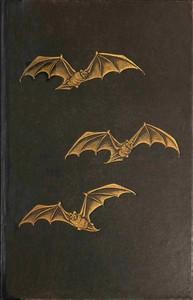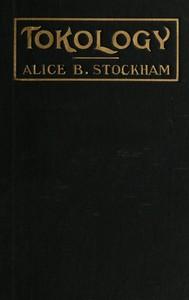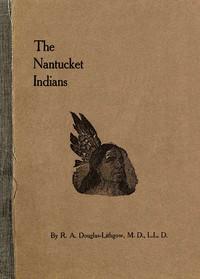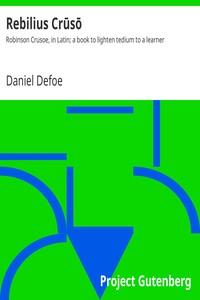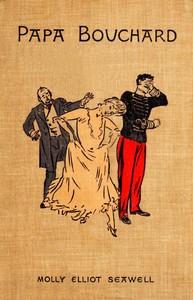|
|
Read this ebook for free! No credit card needed, absolutely nothing to pay.Words: 81183 in 20 pages
This is an ebook sharing website. You can read the uploaded ebooks for free here. No credit cards needed, nothing to pay. If you want to own a digital copy of the ebook, or want to read offline with your favorite ebook-reader, then you can choose to buy and download the ebook.

: The attaché at Peking by Redesdale Algernon Bertram Freeman Mitford Baron - China Description and travel; Redesdale Algernon Bertram Freeman-Mitford Baron 1837-1916 Travel China; China Politics and government 19th century@FreeBooksThu 08 Jun, 2023 I am afraid I can give you but a poor description of Canton; the inventory is too large to be taken in a letter. Mr. Sala or any of the professed literary appraisers would find matter for at least a chapter in the bad smells. The streets are very narrow. Three men might walk abreast in them, and perhaps you might throw in a boy if he was very tiny indeed. On each side are small, low shops, which throw out such a multitude of lanterns and perpendicular notices, like the attenuated ghosts of many-coloured banners, that they look as if a solemn procession in a pantomime had been changed by a tap of the harlequin's wand into a scene of streets and advertisements. As if the gangway were not narrow enough, hucksters and costermongers, offering every kind of goods for sale, hold their stalls on each available square foot of pavement. There are meat stalls, fruit stalls, sweetmeat stalls, sugar-cane stalls, fish stalls, and what can only be designated as offal stalls. The yellowest crowd in the world hustles along pell-mell at a furious rate, for every one is busy and every one is in a hurry. Coolies carrying every conceivable burden balance-wise, from a load of timber to a bundle of leeks, rush at one, and it needs a sharp look-out to steer clear of their bamboo poles. Round the corner, lolling in his chair, for all the world like one of those "magots" Frenchwomen are so fond of, a Chinese dignitary is borne along, attended by five or six policemen in white caps and red tassels, nearly upsetting a small-footed lady, who has just time to totter out of the way on her rickety legs. If there is a clear space, you may be sure there is a doctor or fortune-teller peering into his patient's mouth, like a groom examining a horse's teeth, or tapping his head mysteriously with a fan, to the wonder of a small gaping circle. Barring in very rare instances a dog or two--for the wary little beasts seem to know the danger that they run of being turned into butchers' meat if they stray out of their own domain--no animals are to be seen. Beasts of burden are represented by the men, and beasts of draught there are none; indeed, no carriage, cart, or costermonger's barrow could thread its way here. The amount of industry to be seen in a single street is something surprising. Carpenters, cobblers, turners, carvers--artisans, in short, of all guilds, are toiling away for dear life--no one is idle. The butcher is busy separating the coarser from the finer parts of the meat; the fishmonger gutting his fish, and setting the entrails carefully on one side--there is no part too vile or mean, none too dear and delicate to find a customer. Chow-chow dogs , birds' nests, rice-birds, the beccafichi of China, and all manner of delicacies, are cheek-by-jowl with equally numerous abominations, not to speak of rats and "such small deer." The greengrocers' are the most tempting of the provision shops; they at least show nothing offensive, and they make their fruit look to the greatest advantage, setting oranges, apples, lychees, and vegetables in curious patterns, while ropes of bananas, leeks, young lettuces, and other greens hang from the ceiling. Competition is great, and with the utmost labour it is hard to earn a living, for the two cities, Tartar and Chinese, with their suburbs, hold an immense population, not to speak of the thousands who are born, live, and die in the boats, and have no part or share in the land until they come in for that property six feet by three, which is the common inheritance. Altogether, taking both sides of the river, there are probably a million and a half of inhabitants, of whom not more than one hundred are Europeans. Until the return of the English to Canton, it used to be a point of honour with the Chinese at Hong-kong to try and persuade people that the bombardment of 1856 had not done much damage. If they were asked whether Yeh's Palace or Yam?n had been injured they would answer, "Not too muchee; my hab hear they breakee that cup that saucer; that alloo." But the fact is that the city still bears the marks of the punishment it received; considerable spaces have been laid waste by fire; Yeh's Yam?n has been razed to the ground and its site "annexed" by the French, who are building a cathedral and Jesuit college upon it. Notwithstanding the havoc made by shot and shell, however, there is much to be seen. The Yam?ns of the Viceroy, the Governor, and other high functionaries are standing. I only saw the outsides of these palaces. They are all pretty much alike. An arched gateway, with a colossal warrior painted in fresco on either side, faces a blank wall, on which is drawn the outline of some fabulous monster, and this appears to be used for notices and announcements; marble kylins and grotesque beasts adorn the courtyard, which is crowded with functionaries and dependants. The roofs are fretted into a thousand quaint designs; but you are as familiar with their style as I am, and as I shall probably in some future letter have an opportunity of saying something about the interior of a Chinese officer's palace, I had better let the subject alone now. Of course we went to see the "Temple of Punishments" and that of the Five Hundred Saints, which last is one of the celebrities of China. The former is so called from its containing models of all the various modes which Chinese ingenuity has invented for torturing malefactors. Guarding the portals are two colossal "josses" or idols, represented with vermilion faces and a prodigious corpulency. Bits of paper, as votive offerings, some with inscriptions, but more without, are pinned or fastened to them by the pious: this is a Chinese method of showing respect to the graves of their dead, and to their gods. Inside the gate is a large courtyard, which we found crowded with people; all around were little tables at which sat fortune-tellers, some young men, others veterans with scanty beards and enormous tortoise-shell spectacles, writing as solemnly as judges. Here in bamboo divisions are the dolls which give the temple its name, and very horrible are the scenes which they represent; beyond the courtyard is the real joss-house, from which I carried away a confused idea of tinsel, artificial flowers, scraps of paper, and gloom. Far more interesting was the Temple of the Five Hundred Saints. In the gateway, as in the former case, two josses of stupendous size mount guard. One is represented as solacing himself with a tune on a kind of mandoline; and I noticed that many of the scraps of paper with which he has been "chin-chinned" were cut in the shape of his favourite instrument. Without let or hindrance we wandered through a maze of white-washed and neatly-kept cloisters, until we came to the refectory , where we found the monks at their afternoon meal. Just as we arrived, a tiny musical-toned bell was sounded, at which signal the brethren rose, and what appeared to be a short prayer or grace was recited in chorus, after which a monk of higher rank, preceded by an attendant, left the hall, which was a square room with long tables, and fenced off from the cloisters at one end by a low bamboo railing. As soon as the great man was gone the others fell to at their chopsticks and small bowls with renewed vigour. The monks wear a long light gray robe, and they shave the whole head, but in other respects their dress does not differ from that of laymen. The temple itself is a large hall in which the five hundred, placed in alleys at right angles, sit facing one another in all their majesty. They are all of gilt metal or wood, and under life size, if one may use such a term with regard to idols. They are represented in every variety of attitude, occupation, and expression. Some are playing on musical instruments, and are bland; others are evidently preaching, and are didactic; others are inflicting punishment or doing battle, and are very fierce; one is performing a difficult act of horsemanship on a large kylin, while two smaller kylins are looking on in admiration--one and all are made to look fat and comfortable, with huge paunches. Before each is placed a small green porcelain pot filled with the ashes of the joss-sticks which have been burnt in his honour. The monks were uniformly civil to us, and neither here nor in the Temple of Horrors was any fee asked or expected; how much better it would be if Europeans would follow the example of these heathens, and not ask admission fees in their cathedrals and churches. You may well imagine that during a first visit to a great Chinese city everything appeared strange and marvellous, but the greatest wonder of all was that we should be able to wander hither and thither, intruding into temples, thrusting our curious noses into every hole and corner, like ferrets in a rabbit warren, elbowing our way unmolested through crowds that a very few years ago would have mobbed and brick-batted at least, and perhaps tortured and murdered by inches, any European that ventured outside the factories. It seems almost a fatality that now that the city is safe, and its inhabitants peacefully inclined, the opening of the Yang-Tse-Chiang should have turned the European traffic with the interior, of which Canton was formerly the headquarters, into a new channel. The prosperity of Canton is evident, and very striking. But it is a native and self-containing prosperity, and in no ways dependent on Europe, and shows that the Chinese were quite right when they asserted that they could do very well without us. Just before the principal English firms withdrew their representatives from the city, finding that the little business there was to do could be more cheaply transacted by agents drawing a small percentage, an arrangement was made with the local government whereby we became the lessees of a small mud island, which had to be filled in at a great cost, called Shah-Meen. This was to become the English quarter. The church and new consular buildings have been erected there, and there are a few empty bungalows belonging to merchants, but the place does not seem likely ever to wear a look of great importance; the merchants see no likelihood of an inducement to return, so Shah-Meen has so far been a poor bargain. Not far from Shah-Meen are the pleasure-gardens of a merchant named Po-Ting-Qua. Terraces, summer-houses, stairs, drawbridges, carp-ponds, rock-work, and flowers are thrown together most fantastically, exactly like the gardens that the ladies and gentlemen on teacups and plates walk about in. The doors are cut out of the walls in quaint shapes, such as circles, jars, bottles, etc. As the rainy season has set in the garden was not looking its best, but it was very pretty nevertheless, although there was a little too much stagnant water about for our ideas. Lord Bacon in his essay on gardens says: "For fountains they are a great beauty and refreshment; but pools mar all and make the garden unwholesome, and full of flies and frogs." If this is true in England, how much more does it apply to the East. Such things as flower-beds are unknown here. The plants grow anyhow, without order or arrangement, but they are carefully tended, and indeed the whole place was beautifully kept, and there seemed to be a large staff of gardeners and carpenters, who play a conspicuous part in a Chinese garden. You will be wanting to hear about the curiosity shops. I went to see them, but found nothing but rubbish at outrageous prices. The Chinese buy up everything good at any price. The dealers carry round their best things to the native connoisseurs, and put off any trash upon chance customers, swearing that everything is "oloo and culew," old and curious. I bought one small bottle for a few shillings as a souvenir of Canton, but even if I had had heaps of money, there was no temptation to spend it. I found an old friend at Canton in the person of Mr. R., our consul, who was a most amiable cicerone. He has passed the chief part of his life in China, and is a great authority upon all matters connected with our relations with the Chinese. He lives in a fascinatingly picturesque Yam?n with quite an extensive garden--a curiosity in itself,--we spent most of the day together and met for dinner, either at my quarters or in his beautiful Aladdin's palace, every evening. LETTER II The voyage from Hong-kong to the north, being principally a coasting affair, is not so dull and uneventful as more sea-going cruises. We were constantly in sight of land--numberless headlands and islands mark the course, but render it dangerous in bad weather. There are plenty of ships to be seen, and all around the rocky islands the sea is alive with fishing-smacks, their crews busily at work. We had no mails on board, nor stern officers in charge, so the captain stopped once and bought a quantity of fresh fish, delicious pomfret all alive and kicking, paying the fishermen in kind with ship's biscuit, which I hope was as great a boon to them as their fish was to us. It is such a fine sight in one of these narrow island passages, where one can almost hear the sea dashing against the basaltic rocks on either side, to pass a great sailing-ship close on our lee, and steam away from her at top speed. Long before the estuary is reached, the sea, which in these parts is of a deep aquamarine green, becomes clouded and discoloured. This is owing to the immense volume of yellow dirty water which the Yang-tse-kiang pours down. It is much the same colour as the Rhine, and quite as foul-looking. My good quarters and the kind hospitality which I had met with at Hong-kong seem to follow me on my travels. Here again I have been received with the warmest welcome by Mr. D., a junior partner of C.'s, and I am assured of the same at Tientsing. If all the travellers and officers stationed in China, whom I have met, did not tell me that this hospitality is the universal rule, I should be almost shy of accepting so much kindness. I have little enough to tell you about Shanghai. The city is ugly and unattractive, the river dingy, and the country a dead level plain. From the top of the club-house the view in every direction is utterly unbroken, there is not a mound the height of dear old Salt Hill. Then, commercially speaking, the town at the time of my visit was a blank. The crisis of which I have spoken to you before has told here more than elsewhere; to my eye the harbour seems full enough of shipping, but I am told that there are not more than a third of the vessels that used to be seen in former years. One of the causes which has brought about this effect has been the speculation in land. When the rebellion panic was upon the Chinese they were only too glad to flock into the settlement for shelter; land rose in value, and was bought up in every direction. Now that the revolt has been put down in this part of the empire the natives have gone home to their own abodes, and of course landed property has fallen, so that those speculators who did not sell in time have their money hopelessly tied up. This, and the competition system practised by the Europeans in contrast to the Chinese, who do everything by combination, together with "hard times," have brought Shanghai very low. In short, morally as well as physically, it is, for the present, flat. I have had a good deal of conversation with Sir Harry Parkes, our consul here. You will recollect him as famous for the pluck he showed when he and Loch were taken prisoners in Peking; he is one of the great authorities in China, and one of our ablest officers in the East. He tells me that he considers the state of feeling between the Chinese and Europeans in this part as on the whole satisfactory; that the natives have begun to accept us and our trade as a necessity; to use his own expression, it is a sort of husband and wife arrangement, with slight incompatibilities of temper on both sides. Sir Harry Parkes is a man of extraordinary determination and energy; his knowledge of the Chinese language, customs, and character have given him an immense influence over the natives. He is in every way a remarkable man, and great things are expected of him, even by those who differ from him in opinion. It is only fair to say, that there are many men of judgment and experience out here who do not agree with him in holding that our trade with China stands on a solid footing. They consider that the unwilling spirit with which the natives first received us has by no means died out, and that little by little, always by fair means and without violence, for they know our strength, the Chinese will endeavour to oust us from our position, and return to their traditional conservatism. Perhaps this is a pessimist creed, but still it is largely professed. At any rate the Chinese will find it a hard matter to get rid of us, for no Government will give up a matter of nearly six millions of revenue without a struggle. For the present the British are welcome here. The Ta?i Pi?ngs have been driven out of this part of China, and the rebellion has dwindled down to comparative unimportance. The Chinese may be given credit for so much of gratitude as looks upon past benefits as earnests of future favours. We can still be useful, so we are still courted. It remains to be seen whether, when we shall have played our part out, our friends will try to cast us on one side. Free books android app tbrJar TBR JAR Read Free books online gutenberg More posts by @FreeBooks

: The Nantucket Indians by Douglas Lithgow R A Robert Alexander - Indians of North America Massachusetts; Nantucket Island (Mass.) History@FreeBooksThu 08 Jun, 2023

: Rebilius Crūsō by Defoe Daniel Newman Francis William Translator - Shipwreck survival Fiction; Islands Fiction; Crusoe Robinson (Fictitious character) Fiction; Atlantic Ocean Fiction; Adventure stories; Castaways Fiction; Latin language Readers@FreeBooksThu 08 Jun, 2023
|
Terms of Use Stock Market News! © gutenberg.org.in2025 All Rights reserved.

